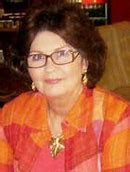p.m. terrell
Through The Novel Business, I’ve had the pleasure of working with a number of authors in various stages of their careers and I’ve discovered even New York Times bestselling authors can lose their publisher. Sometimes the publisher has simply decided the title has run its course. Far more often, however, it’s the publisher experiencing problems ranging from personal illness to a lack of capital required to keep the doors open. More than one author has contacted me in a panic; after heavily promoting their books and their author brand, they are left with no product in the marketplace. What do you do when this tragedy strikes?
First, understand your rights. The original publishing contract should spell out what happens if the publisher discontinues your titles. Look specifically for whether all rights revert back to you. Written correspondence between you and your publisher should clarify this issue; do not rely on oral communication. Contact an attorney if necessary to ensure that you own the rights to your titles.
Second, obtain the latest electronic copies. Particularly if your publisher edited your manuscript, you will want the most polished copy—not the rougher version you might have originally submitted. The refined manuscript will give you the best chance at republishing, receiving decent reviews and selling copies.
Third, record your sales or ask the publisher for a detailed report. A track record begins once a title has been published. This means that traditional publishers and literary agents can quickly look up your book’s sales figures if the sales were through traditional outlets. If sales were non-traditional, prepare to disclose how many were sold, when and to whom—individual names are not needed but retailers, organizations and channels are helpful.
Fourth, decide whether you want to sign with another traditional publisher, a hybrid publisher or self-publish. If you want another traditional or hybrid contract, include in your query letter that the book was previously published, when and by whom, how many copies were sold and why the publisher is cancelling your contract. I knew an author whose major publisher cancelled their series because sales had fallen below 150,000 copies in six months, but a mid-sized publisher considered those sales figures as highly profitable. Also include in your query letter how you promoted your titles including links to your website, blog and social media platforms, including the number following or subscribed to you.
Fifth, if you decide to self-publish, rethink your books’ titles. Once a book has been traditionally published, the record remains forever. If you publish with the same title, there could be confusion whether the title is still in circulation because the first publisher’s entry will remain in the databases but flagged as unavailable or discontinued. Consider a completely different name or if you’re committed to the original title, add “2nd Edition”, “Anniversary Edition” or another unique designation.
Sixth, if you have several titles that have been left out in the cold, consider traditional queries on the most successful ones. If self-publishing, contemplate releasing one title at a time. This provides each title a 3-to-6-month window in which you can promote that particular book as a re-release. If you republish the entire backlist, your promotional efforts will be spread out and less focused.
I know several bestselling authors that still maintain relationships with major publishers for some titles, while self-publishing discontinued ones. This has provided them with the best of two worlds: the strong distribution and exposure a large traditional publisher can provide as well as a self-published backlist in which they can earn more money per sale.
p.m.terrell is the award-winning, internationally acclaimed author of more than 21 books in various genres. She is also the founder of The Novel Business dedicated to helping authors navigate the publishing industry, including consulting services and a 52-Step Marketing Plan to catapult sales. For more information, visit www.pmterrell.com and www.thenovelbusiness.com.
































